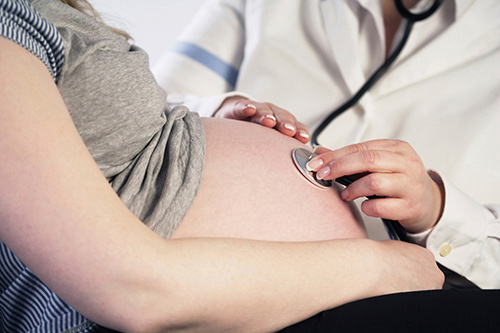 Credit: EmiliaUngur/Shutterstock
Credit: EmiliaUngur/Shutterstock
Women with exposure to computed tomography (CT) scans before getting pregnant are at increased risk for miscarriage and congenital abnormalities in their babies compared with women who have not had CT scans, with risk increasing with higher exposure.
“CT imaging is an indispensable tool for disease diagnosis, prognosis, and surveillance, yet it remains a major source of ionizing radiation exposure in humans,” write lead author Camille Simard, MD, an assistant professor of medicine at McGill University, and colleagues in the Annals of Internal Medicine.
“The use of CT imaging has risen significantly in the past three decades, including during pregnancy and among nonpregnant younger women.”
The current study aimed to assess whether exposure to CT scans could be damaging to women aiming to get pregnant. It was carried out in Ontario, Canada and included 5,142,339 recognized pregnancies and 3,451,968 live births recorded between 1992 and 2023.
The researchers looked at the impact of one, two, three or more preconception CT scans carried out at least four weeks before the beginning of pregnancy on pregnancy viability and on rates of congenital abnormalities. Women who did not have CT scans were used as a control group.
In the control group, the average rate of pregnancy loss in the study was 101 per 1000 pregnancies and the rate of congenital abnormalities was 62 per 1000 births.
In comparison, women who had one, two, or three or more preconception scans experienced pregnancy loss rates of 117, 130, and 142 per 1000 pregnancies. This translated to relative risk increases of 8%, 14%, and 19%, respectively, versus women who did not have CT scans.
Women exposed to CT scans also had higher rates of congenital abnormalities in their offspring with rates of 84, 96, and 105 per 1000 births in those who had one, two, or three or more preconception scans, respectively. This risk increases associated with this exposure versus controls were a respective 6%, 11%, and 15%.
The researchers say that the risks were significant, but add that the causal mechanism is uncertain.
“The findings of this study suggest that professional societies need to reconsider positions that deny or minimize the cumulative effects of radiation,” said Seth Hardy, MD, an associate professor at Penn State Health, who authored an accompanying editorial in the same journal.
“Informed consent is a cornerstone of medical ethics, and if there is risk to a future pregnancy, then the ordering clinician and radiologist must counsel a young woman about the balance of potential risks versus benefits.”
